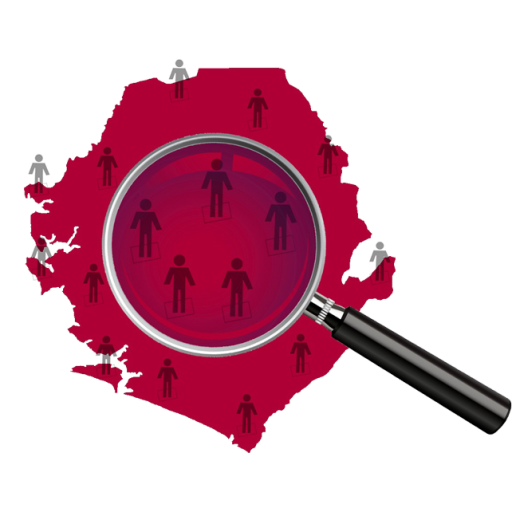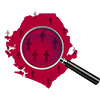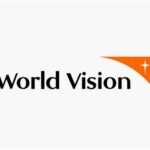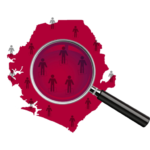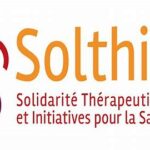Job Overview
-
Date PostedApril 3, 2024
-
Location
-
Expiration dateApril 23, 2024
-
GenderBoth
-
OrganizationWorld Vision International
-
Required LanguagesEnglish
Job Description
Call for Expression of Interest for Service Providers in addressing Human Rights, Stigma, Gender Related Barriers, Discrimination in Accessing Services for Key Populations (KPs)
Context
World Vision is a Christian humanitarian aid, development, and advocacy organization dedicated to working with children, families, and their communities to reach their full potential by tackling the causes of poverty and injustice. World Vision International Sierra Leone (WVISL) has been selected as the Civil Society Organizations (CSO) Principal Recipient Two (PR2) for the Global Fund Grant Cycle 7 (GC-7) program in Sierra Leone that will run from 1st July 2024 to 30th June 2027. In the GC-7 implementation period, WVISL has been tasked to provide interventions for HIV, Malaria, TB, and RSSH as community Principal Recipient Two (PR2). For the GC7 implementation period.
The HIV epidemic in Sierra Leone is considered mixed, generalized, and heterogeneous but concentrated in key Population groups (KP). The HIV epidemic affects the KP groups through multiple and diverse transmission dynamics. Although the prevalence of HIV among the general population appears low in Sierra Leone at 1.7% (SLDHS 2019), Key population groups have a significantly higher HIV prevalence compared to the National figure of 1.7% (IBBSS 2021). HIV prevalence among these populations is FSW-11.8%, Transgender-4.2%, PWID
4.2%, and MSM-3.2%. (NSP_NACP). In addition, Adolescent Girls and Young Women, clients of FSW (such as fisher folks, miners, and transporters), and partners of Recipients of Care (RoC) have been identified as vulnerable and at risk of HIV infection. Differential vulnerability levels, social risk factors, high-risk sexual practices, and limited access to appropriate HIV interventions influence HIV incidence among these populations.
Stigma and discrimination against PLHIVs are one of the biggest challenges in the HIV response. High stigma and discrimination adversely affect the implementation of HIV prevention, treatment, care, and support services, particularly about people being discouraged from accessing these services. This in turn increases the risk of HIV transmission
(Sierra Leone National HIV Behaviour Change Communication and Advocacy Strategy, 2011- 2015).
Sierra Leone is one of the 30 countries with the highest disease burden of Tuberculosis in terms of cases per capita. WHO estimated 23,000 TB cases in 2018 at an incidence rate of 298 per 100,000, out of which, 3300 of these are children, 640 Multiple Drug Resistant (MDR) TB cases, and 2,900 HIV-co-infected. There has been a steady decline in mortality due to TB, from 55/100,000 in 2014 to 33/100,000 in 2019. This is largely due to increased case detection and improved treatment outcomes.
1
The greatest contributors to human rights-related barriers for people living with TB or HIV and other key and vulnerable populations are related to widespread poverty; stigma and discrimination; gender inequality and other barriers for adolescent girls and young women; and limited legal literacy, legal services, and functionality of the legal justice system.
Service Provider
WVISL will recruit a competent Service Provider (SP) to support the implementation of the following interventions, in collaboration with World Vision International Sierra Leone, the National AIDS Control Program of the MOH (NACP/MOH), the National AIDS Secretariat (NAS), Civil Society Organizations, community actors, traditional authorities, law enforcement agencies, and other relevant stakeholders. These interventions will be:
- Activities addressing stigma and human rights-related barriers affecting the optimal uptake of HIV and TB services that primarily affect population groups that are most vulnerable to these diseases.
- Activities related to community system strengthening, and Community Led Monitoring (CLM).
The SP will support the management of the CLM server and enhance its successful adoption to improve the quality and effectiveness of HIV, TB, and Malaria interventions after a seamless transition of the server from the GC-6 PR2 to WVISL for a limited period. The contracted SP will ensure that data from the CLM can enhance Recipients of Care (RoC) themselves monitor the quality of health services, identify gaps, verify health service quality, and ensure that services meet the needs of RoC. The SP will also ensure that through the various CLM data, KPs and RoC will be empowered to know their rights and to have an active role in ensuring that they are being upheld in accessing services.
WVISL plans to ensure a seamless transition of the CLM server from GC-6 PR2 to WVISL for a period of 6 months to a year within the first-year cycle of the GC-7 implementation period. The server will be then be handed over to the SP who in turn will manage the server for 6 months to a year. They will also ensure that accurate data is been captured to inform advocacy for the demand and supply of essential healthcare services for KPs. The contracted SP will ensure that data from the CLM can support Recipients of Care (RoC) to monitor the quality of health services, identify gaps, verify health service quality, and ensure that services meet the needs of RoC. The SP will also ensure that through the various CLM data, KPs and RoC will be empowered to know their rights and have an active role in ensuring that they are being upheld in accessing services. The SP in consultation with WVISL will also develop well tailored capacity-building plans and initiatives for KP network organizations to ensure that within the last semester of the second year in GC7 (Q3 &Q4), one identified KP network CSO is equipped and capacitated to effectively manage the transition from the SP in an inclusive and participatory manner with its peers. The SP will implement the following activities:
- Activities addressing stigma and human rights-related barriers affecting the optimal uptake of HIV and TB services:
2
1.1. Stigma and Discrimination Reduction – Laws and Policies
The SP will establish a redress mechanism for addressing violations relating to stigma and discrimination linking complaint desk officers and the Human Rights Commission. They will
Collaborate and support the country on the update of the National Human Rights Strategy “Multi-year Plan to Remove Human Rights-Related Barriers to HIV and TB Services (2021- 2024)
- Review policies on stigmatization;
- Popularize the reviewed act;
- Support roll-out and enforcement of the revised act.
- Support the country to have a functional human rights oversight mechanism. 1.2. Stigma and discrimination reduction – SBCC and Media
- Mobilize and sensitize communities on HIV/TB-related stigma and discrimination;
- Conduct quarterly Media campaigns for the integration of non-stigmatizing messages for PLHIV into TV and radio shows;
- Implement the recommendations of the PLHIV Stigma Index 2.0;
- Organize ‘edutainment’ on HIV/TB-related stigma and discrimination of KPs;
- Raise HIV awareness to prevent new infections and reduce HIV and AIDS-related stigma and discrimination.
1.3. Reduction of Sexual and Gender-Based Violence including Rape (FSW and AGYW) The SP will support achieving legal reform through continued engagement with the national legislature and senior policymakers. They will address the many repressive laws that serve as barriers to HIV and AIDS services for the KP community. The SP will
- Conduct small group meetings of community members on adherence and treatment literacy;
- Scale up prevention of gender-based and intimate-partner violence among FSWs through Peer-led education;
- Continue support to five KP-led organizations in the 6 selected HIV districts to serve as third-party reporters of complaints of KP to authorities and police;
- Support the prevention and reduction of women and girls’ vulnerability to sexual violence and other harmful cultural practices;
- Engage with traditional, religious, and opinion leaders, and support national campaigns on SGBV that will be undertaken.
- Undertake campaigns to raise community awareness, public interest litigation, submissions to the National Human Rights Commission, and UN treaty body advocacy;
- Establish a partnership with existing legal advocacy groups on advocacy opportunities and mobilizing broader support for and contributions to law and policy reform efforts, including the possibility of strategic public interest litigation to reform discriminatory laws.
1.4. HIV and HIV/TB-related legal services
3
- Train KP complaint desk officers, Advocacy Officers, and detention monitors to provide paralegal services and counselling through arbitration, and dispute settlement mechanisms for women and girls, KPs, TB patients, PLHIVs, and people in close settings;
- In collaboration with the HIV program implementing partners, support Peer Educators (MSM, TG, FSW, PWID) to carry out the prevention of gender-based / intimate-partner violence among the community;
- Organize collaboration meetings with law enforcement agencies for the reduction of stigma and discrimination against KPs;
- Support legal services for key populations in filing cases through the Legal Aid Board and other human rights institutions to address concerns related to key populations;
- Build KP Partners Compliant Desk Officers’ capacity to investigate document, follow
up, and report violence and other human rights violations to legal authorities;
• Sensitize and roll out community engagement activities for the community, traditional and religious leaders on reducing SGBV including early/child marriage, HIV, and STIs in the six (6) high-burden districts;
- Support community led interventions like workshops, awareness-raising campaigns and community discussions on reducing stigmas within the community of MSM against HIV-positive MSM, MSM who use drugs or are HIV-positive, and sex workers who use drugs to;
- Support capacity-building initiatives for Civil Society Organizations working on human rights to reduce stigma and discrimination based on HIV, TB, or other status (e.g. sexual orientation, gender, drug use, sex work);
- Conduct human rights, gender, ethics, and sexual diversity training for journalists to facilitate ethical reporting on HIV, PWID, MSM, and TG issues.
1.5. Improving laws, regulations, and policies relating to HIV
The SP will support achieving legal reform through continued engagement with the national legislature and senior policymakers. They will address the many repressive laws that serve as barriers to HIV and AIDS services for the KP community by
- The SP will engage with lawmakers, the Law Reform Commission, and the Judiciary to advance the amendment of discriminatory laws that adversely affect KPs access to services as well as address arbitrary arrest and detention, which affect access to treatment. 1.6. Legal Literacy (“Know Your Rights”)
The SP will continue in the same vein with efforts already made by the various key affected populations and KPs to provide information to their constituents concerning their rights, responsibilities, and privileges. It is hoped that with the hiring of the services of the legal retainer and the support of the Human Rights Commission, the SP will improve on some success already made.
Achievement of universal access to HIV prevention, treatment, care and support requires an equal commitment to universal access to legal services. This is critically important given the high levels of social marginalization and of discrimination against people living with and affected by HIV and TB. Legal services should be accessible and affordable to all communities
4
affected by the epidemic. This requires an expansion of quality HIV-related legal services to improve the coverage of services, alongside efforts to expand access to HIV prevention, treatment, care and support services. WVISL as PR2 will solicit the services of a KP legal retainer through an open and competitive process. The SP will work directly with the legal retainer to ensure that core legal services are provided to KPs which include:
- The education of people living with and affected by HIV and TB about their legal and human rights (‘legal literacy’ and empowerment programmes). This is essential to ensure that those accessing legal services include people who otherwise might not know that their legal and human rights have been infringed or how to enforce their rights.
- Education of lawyers, paralegals, judiciary, nongovernmental organizations, prosecutors and police about HIV and TB human rights and the law as well as effective provision of HIV and TB-related legal services.
- Education of the media, healthcare workers, employers, trade unions and other groups about HIV and TB human rights and the law.
- Conduct research on trends of HIV and TB-related legal cases, including the monitoring and documentation of human rights violations.
- Conduct advocacy and campaigning on policy and law reform issues, or for changes to practices and increased resources.
1.7. Sensitization of lawmakers and law enforcement agents
- Advocacy meetings with the law and key decision makers for OST and needle exchange program;
- Sensitize active law enforcement officers, judges, magistrates, and members of the Human Rights Commission on HIV, and key population issues, with a focus on stigma and discrimination, throughout the country;
- Sensitize lawmakers on HIV and key population issues;
- Sensitize local governance structures (local councils and related Organizations) on HIV and TB stigmatization.
1.8. Removing Human Rights related Barriers in TB Interventions
- Eliminating TB-related stigma and discrimination;
- Reducing TB-related gender discrimination, harmful gender norms and violence;
- • Improving legal literacy (“know your rights”);
- Increasing access to justice;
- Monitoring and reforming policies, regulations, and laws;
- Ensuring people-centred and rights-based TB services at health facilities;
- Ensuring people-centred and rights-based law enforcement practices;
- Supporting community mobilization and advocacy, including community-led monitoring to address the barriers in the community.
- Addressing the needs of people in prisons and other closed settings.
5
- Community Led Monitoring (CLM)
The SP will support SRs and KPs to ensure that data from the CLM will ensure that recipients of care themselves monitor the quality of health services, identify gaps, verify health service quality, and ensure that services meet the needs of recipients of care. Through the various CLM data KPs and recipient of care will be empowered to know their rights and to have an active role in ensuring that they are being upheld. The SP will
- Monitor and report on how services, programs, and policies are implemented and experienced at the level of communities and recipients of care.
- Compile and analyse the data collected to identify opportunities for improvement and inform advocacy.
III. Review evidence with SRs, KPs, healthcare service providers, program managers, and policymakers to jointly develop and implement solutions to the identified problems. IV. Integrate malaria into the existing CLM tool, conduct refresher training, digitalize data collection using web-based tools, and ensure CLM structures are functional, effective, and efficient.
- Design innovations for the effective utilization of the CommCare CLM tool for Community System Strengthening (CSS) and Community-led Monitoring (CLM).
- Selection process for HIV and TB Human Rights Service Provider (SP) A clear, transparent, and documented process for selecting the successful Service Provider will be undertaken. This process will include the evaluation and assessment of EOIs by a multi stakeholder review panel and the subsequent endorsement and approval by WVISL.
- Application Eligibility Criteria
To be considered for an award as a Service Provider, the shortlisted Organization must:
• Be a national or International institution registered and operating in Sierra Leone.
• Be compliant with local laws and have the license to operate under the relevant laws of Sierra Leone.
- Submit a complete application by the due date, including a fully completed cover page;
- Submit documented evidence of experience working on addressing Human Rights, for HIV, TB and Gender-Related barriers for KPs.
- Application and Submission of Information
Each applicant must provide the information required by this call for expression of interest. This subsection addresses general content requirements applying to the full application. Please pay attention to the information on the content specific to the expression of interest application.
The expression of interest must include a cover page containing the following information:
- Name of the organization(s) applying;
- Identification and signature of the primary contact person (by name, title, organization, mailing address, telephone number, and email address) and the identification of the alternate contact person (by name, title, organization, mailing address, telephone number, and email address).
The EOI should be specific, complete, and presented concisely. The application must demonstrate the applicant’s capabilities and expertise concerning this program.
- Minimum documentation requirements to be submitted (as annexes)
- Certified copy of Annual (not Transactional) Tax Clearance Certificate for 2023 or 2022.
- Certified Audited Financial statements signed by its Executive Director (or the Board) for the last three consecutive years (2020, 2021, and 2022). Please note that applicants can submit either a complete set of Organizational Annual Audited Financial Statements or Project Specific Audit reports.
- Copy of Audit Management Letters for three consecutive years (2020, 2021, and 2022).
- Copy of the current Approved Organization’s Strategic plan that has the interventions being applied for.
- Copy of project report demonstrating the implementation of this kind of intervention.
- Current Organigramme of the Organization
- List of Senior Management’s full names and positions held in the organization
- List of Board members’ full names.
- Physical addresses of the Head Office and the sub-offices (at regional and district levels) of the Organizations in Sierra Leone.
Guidelines for Submission of Applications
Applicants MUST submit the full application package, including the EOI (Not more than 20 pages, Lato font size 11) and all the supporting documentation in both hard (two copies) and electronic copies (in PDF format):
- Hard and electronic copies must be addressed to ‘World Vision International Sierra Leone Global Fund GC-7 PR2 Technical Review Panel.
Electronic copies in PDF format should be sent to
worldvisionSierraLeoneGFselection@wvi.org
Applications (including those sent through Courier Services) must be submitted on or before 17:00 GMT, 22nd April 2024.
All the correspondence and documents related to the EOI application shall be submitted in English. Applicants should submit their 2 hard copies and supporting documentation in one sealed envelope addressed to:
World Vision International Sierra Leone,
35 Wilkinson Road,
PMB 59,
Freetown.
Please note: Applications in response to this EOI must be submitted no later than the closing date and time indicated in this EOI. Late applications will not be reviewed nor considered.
